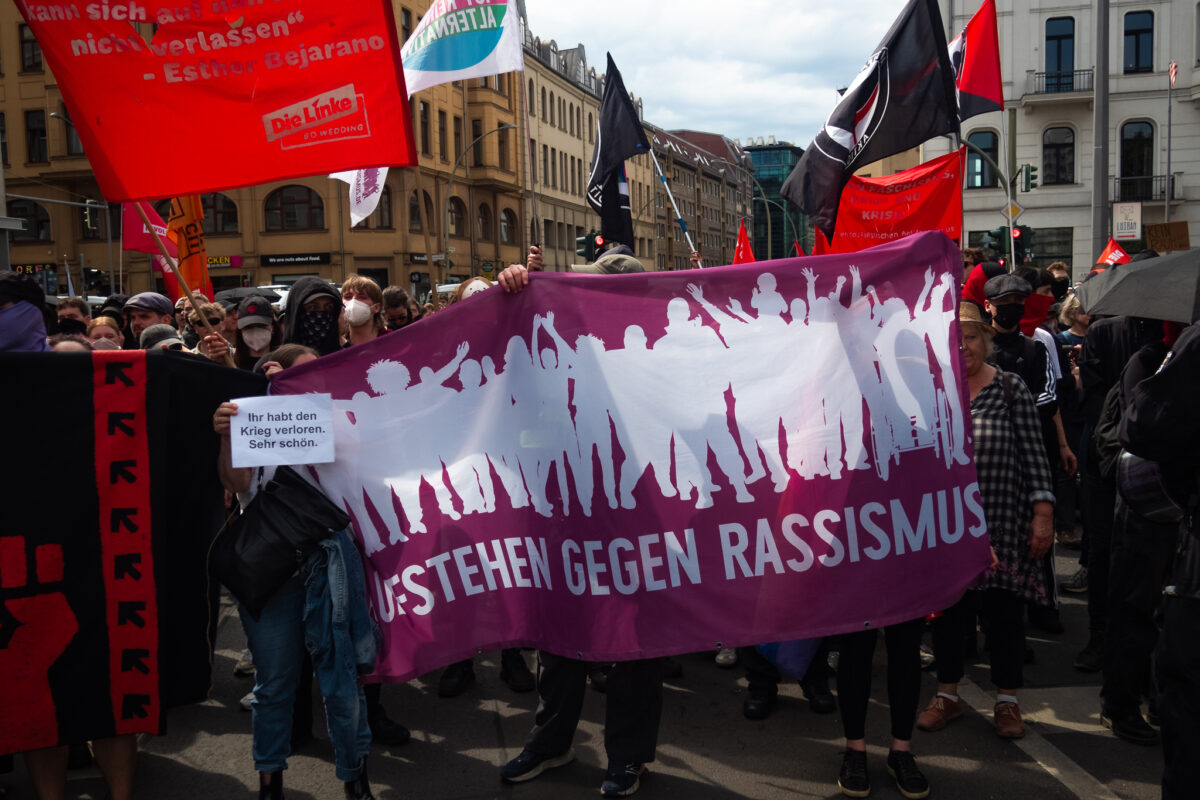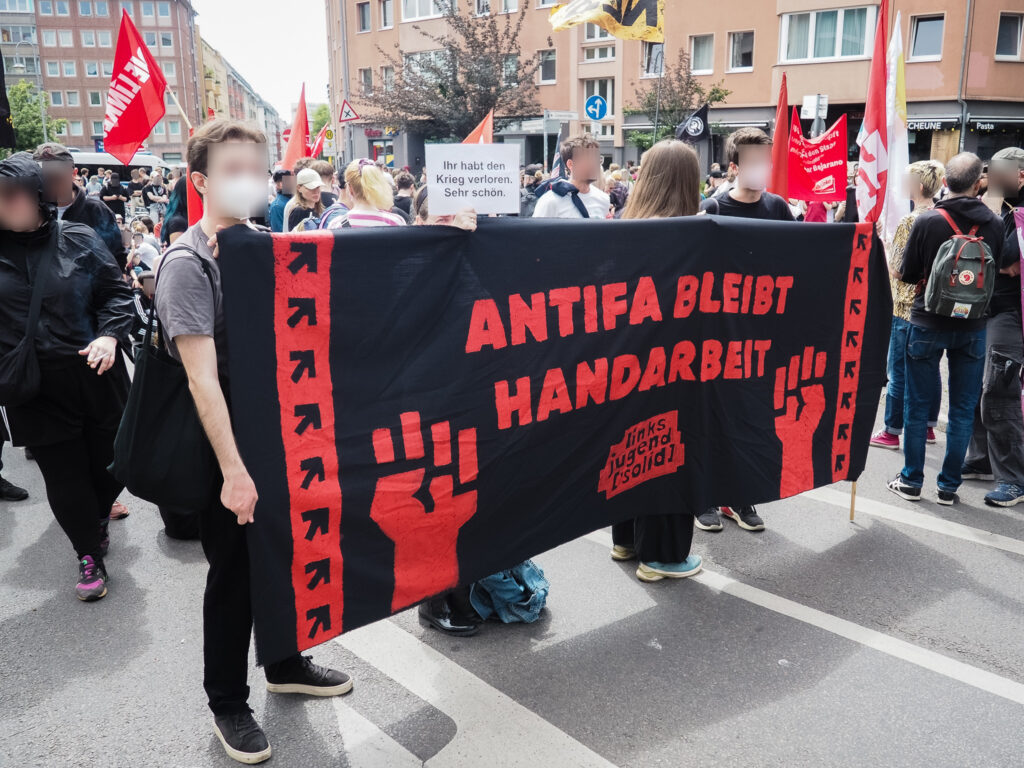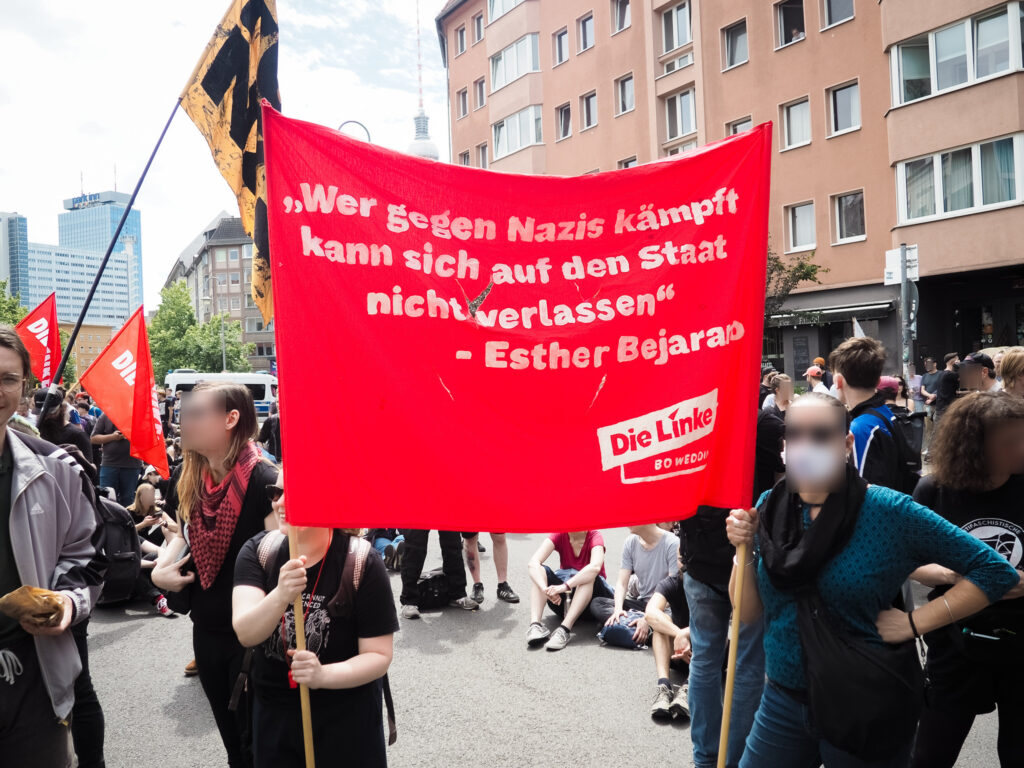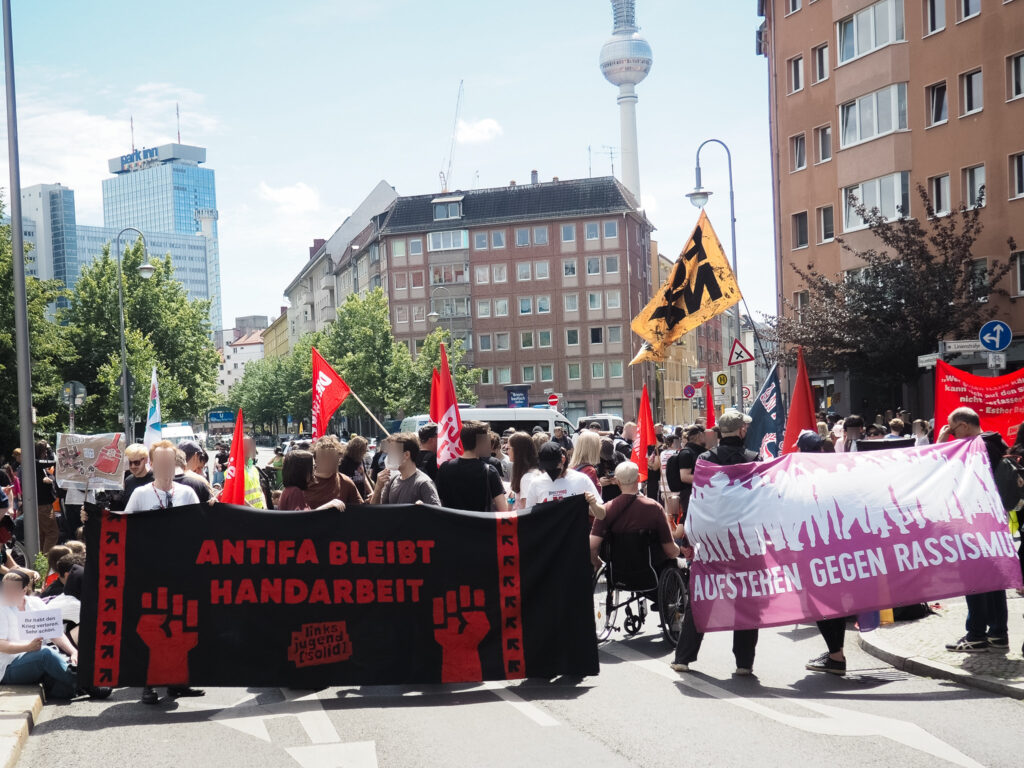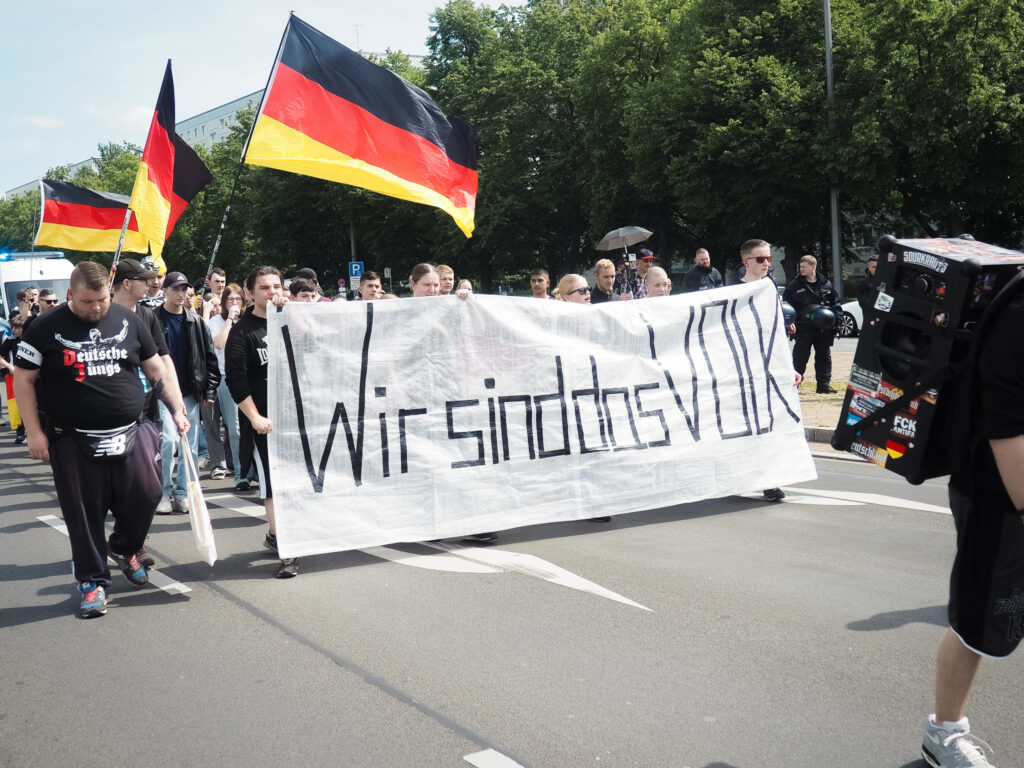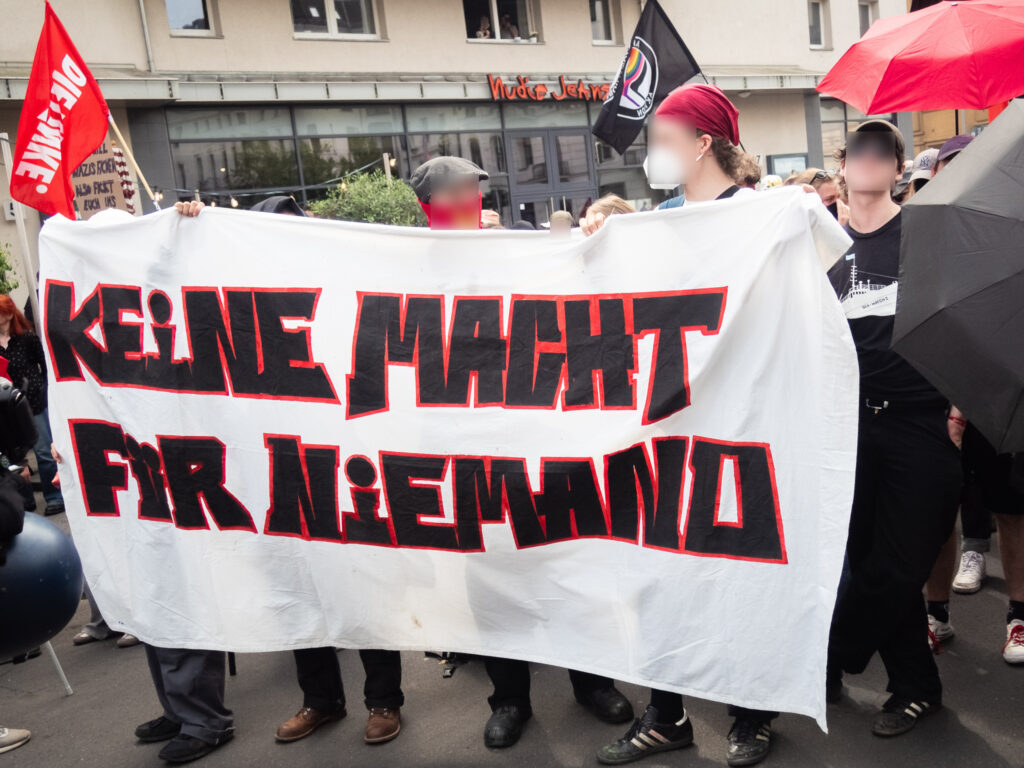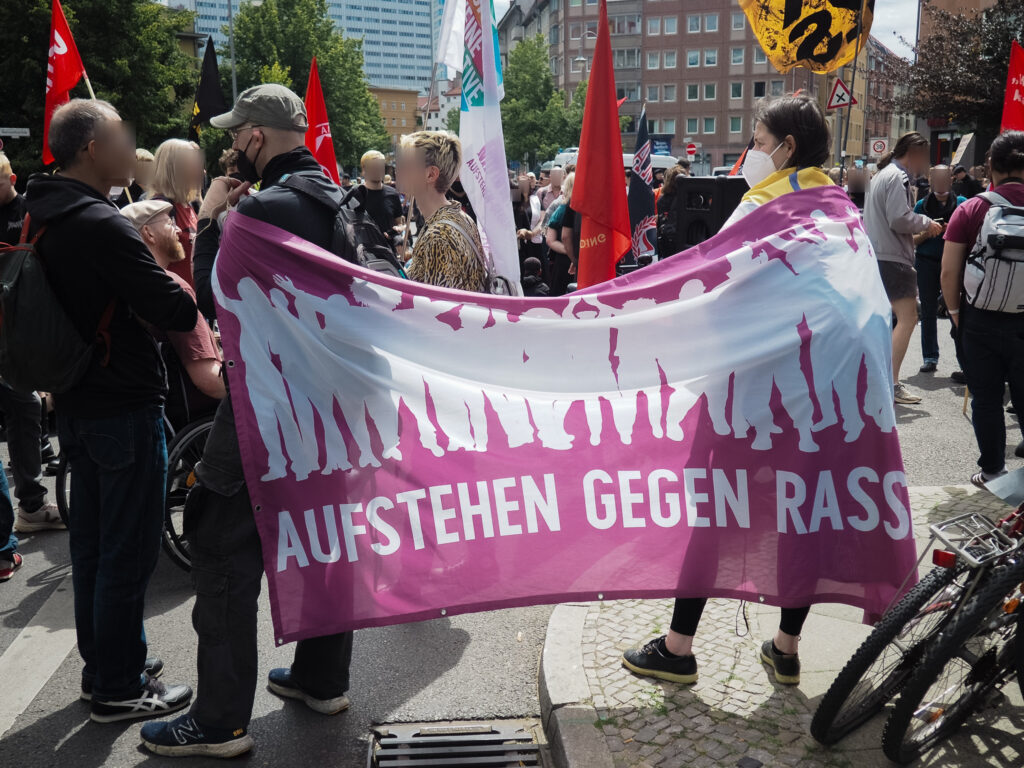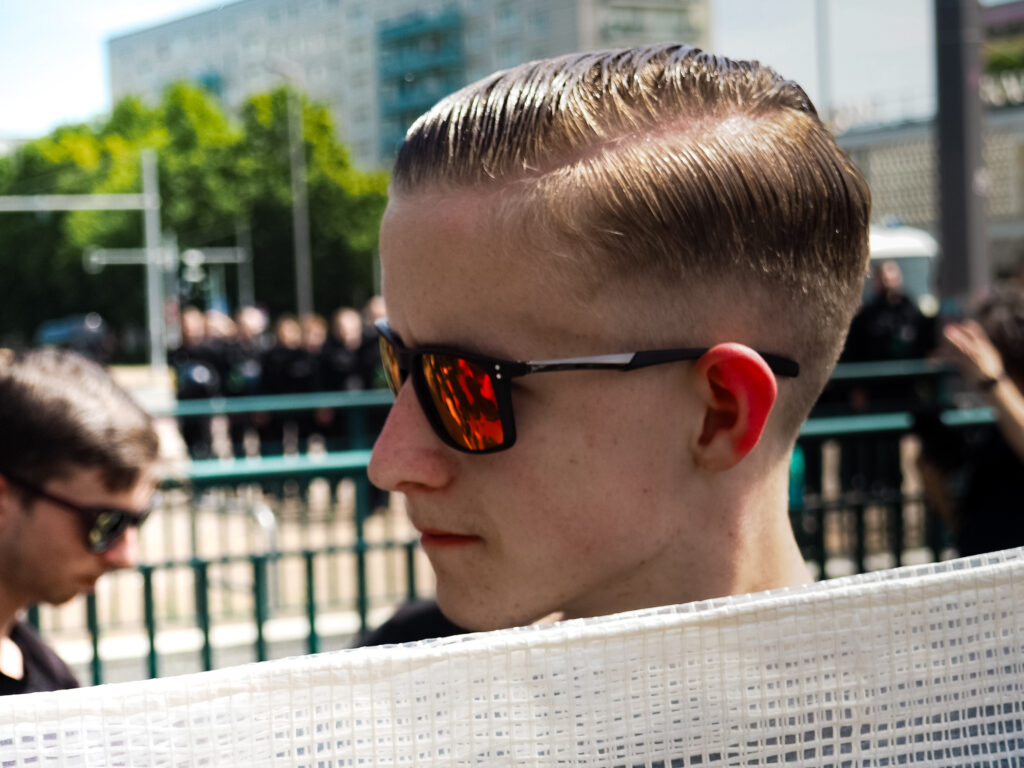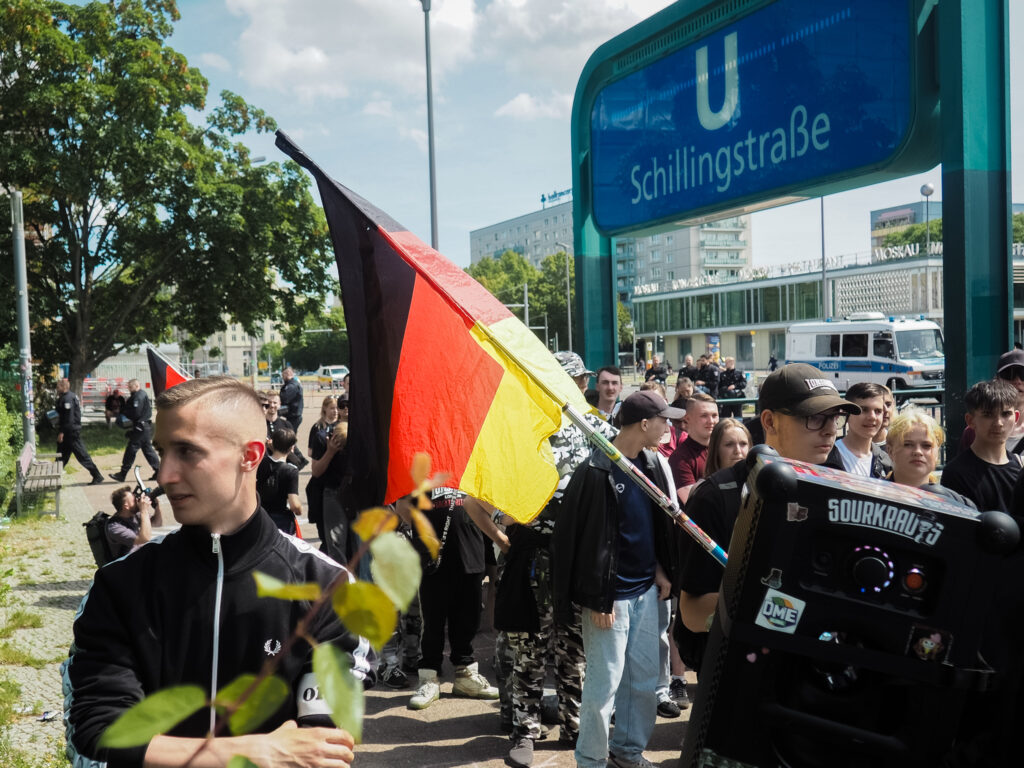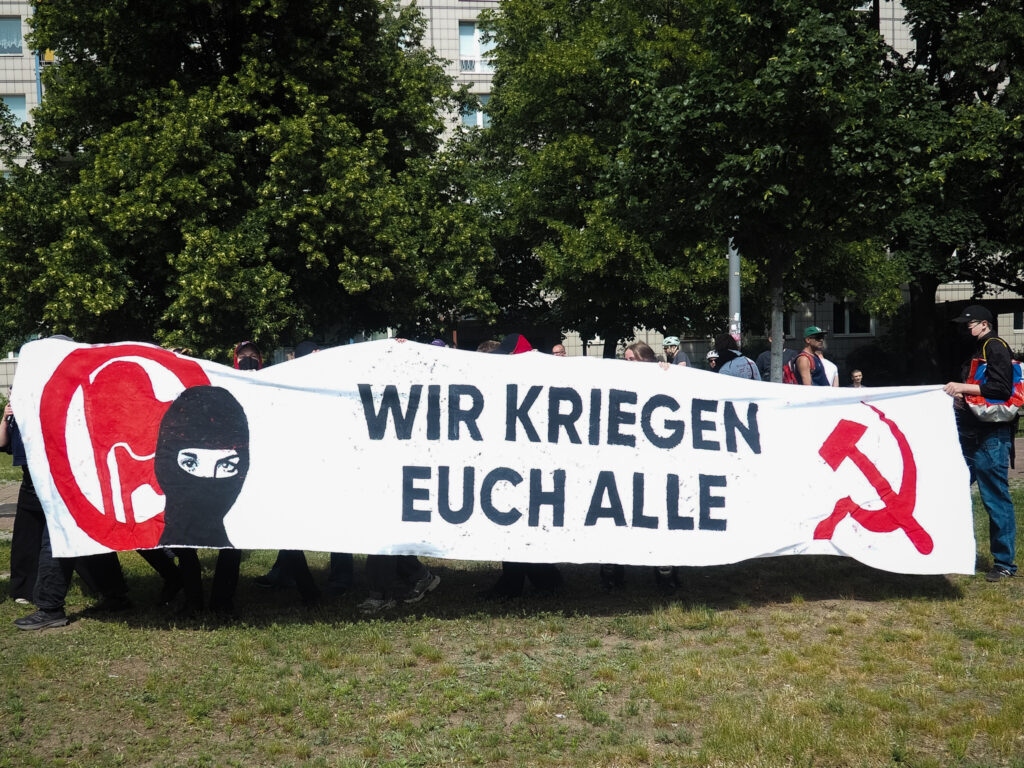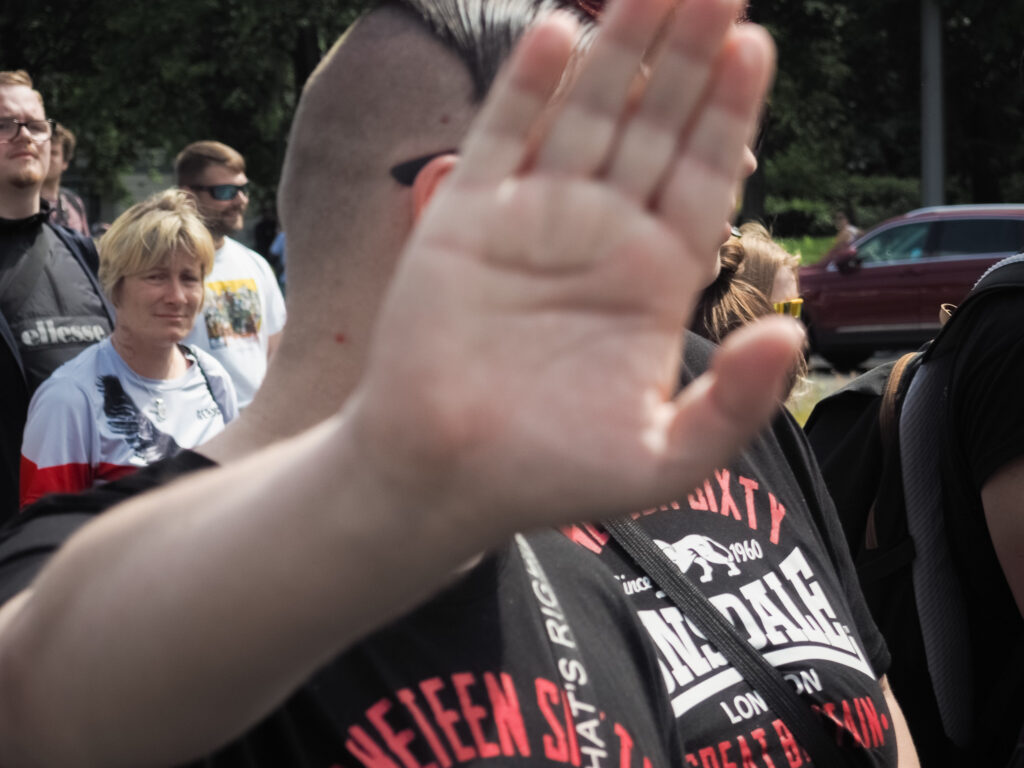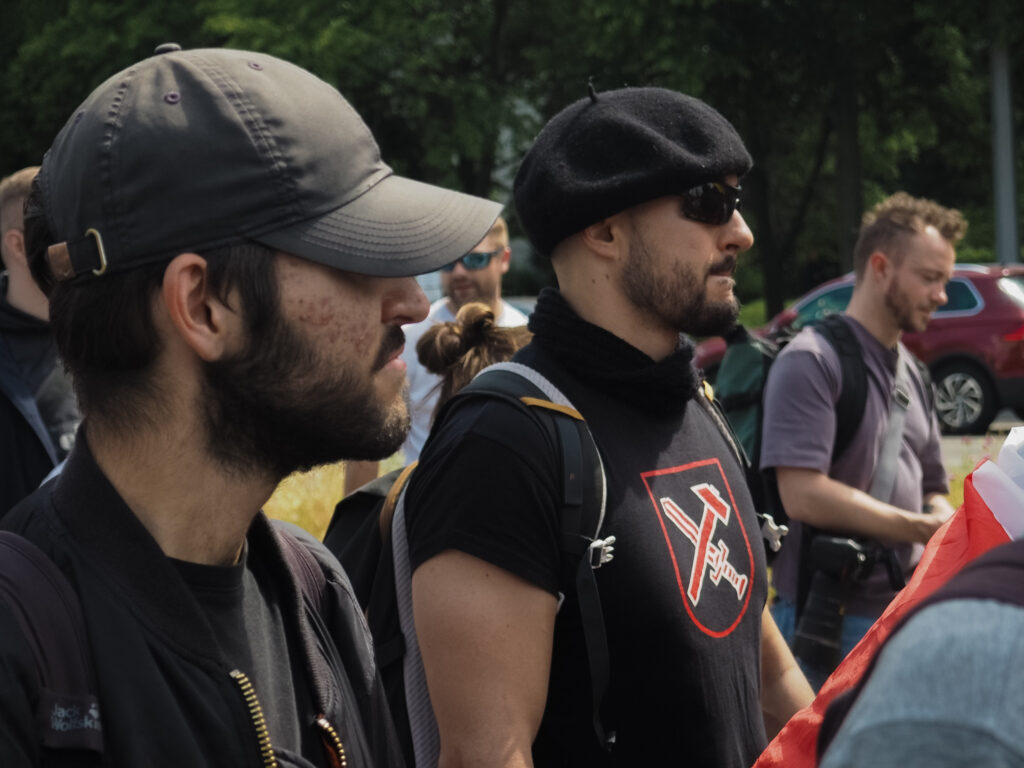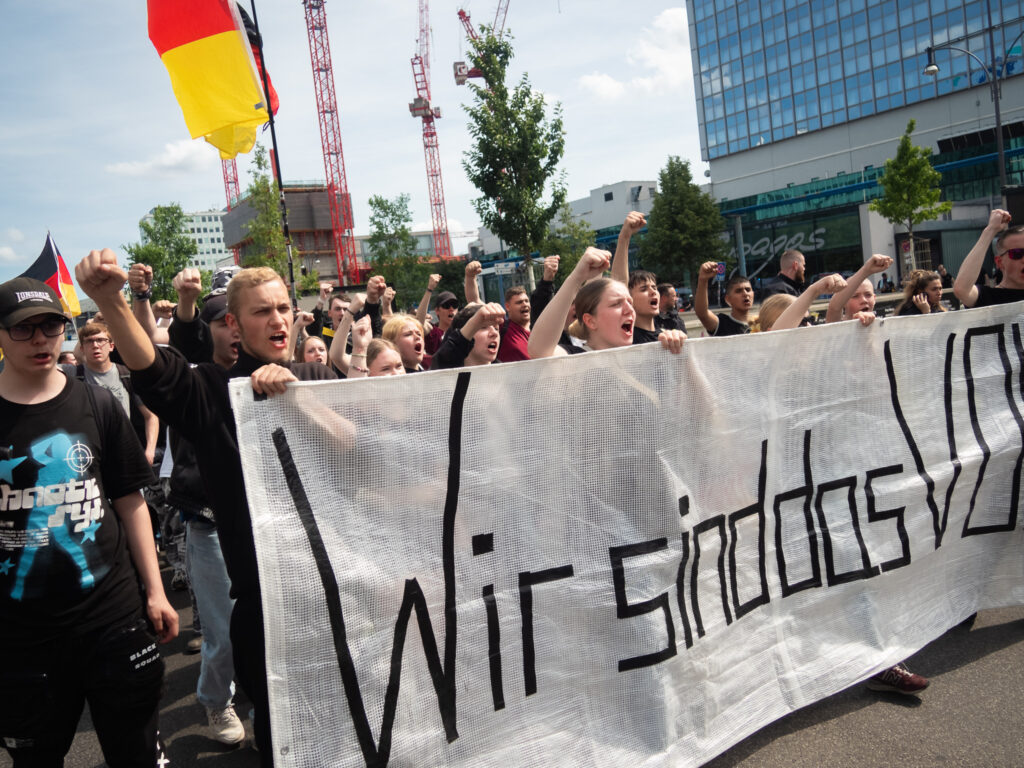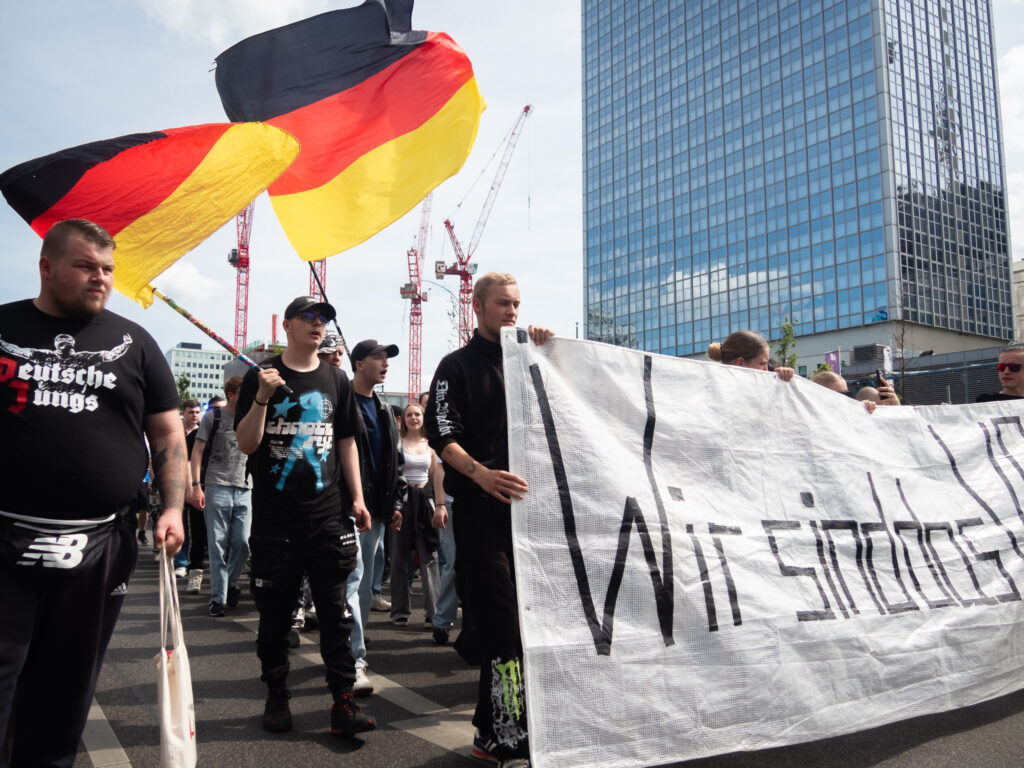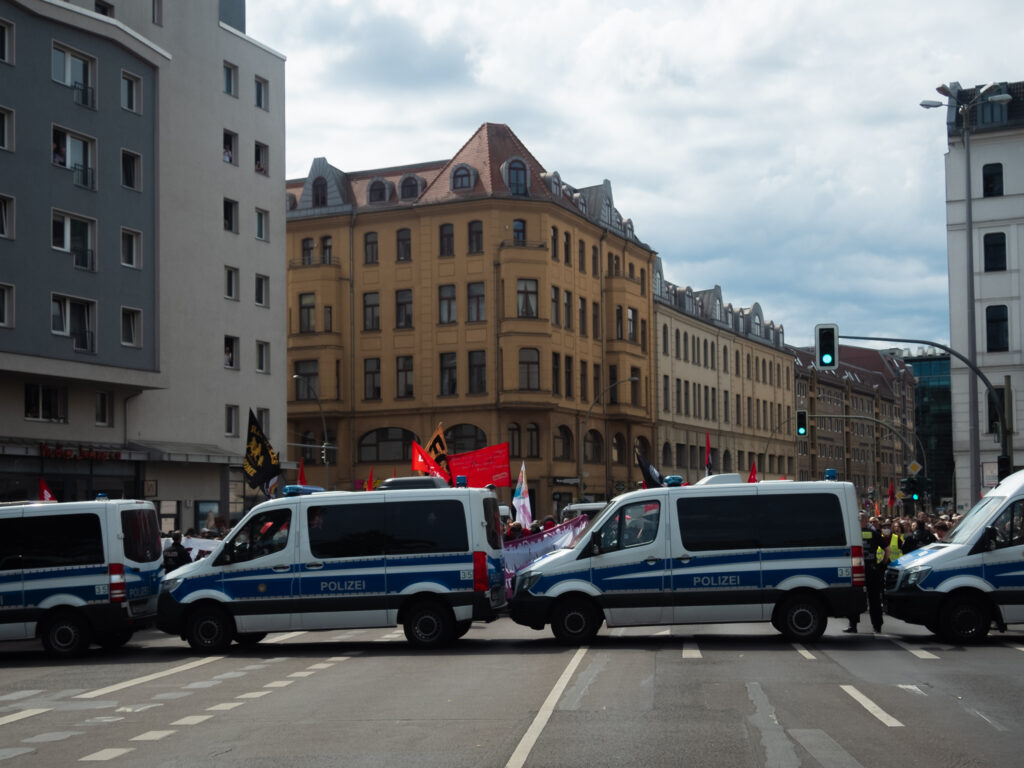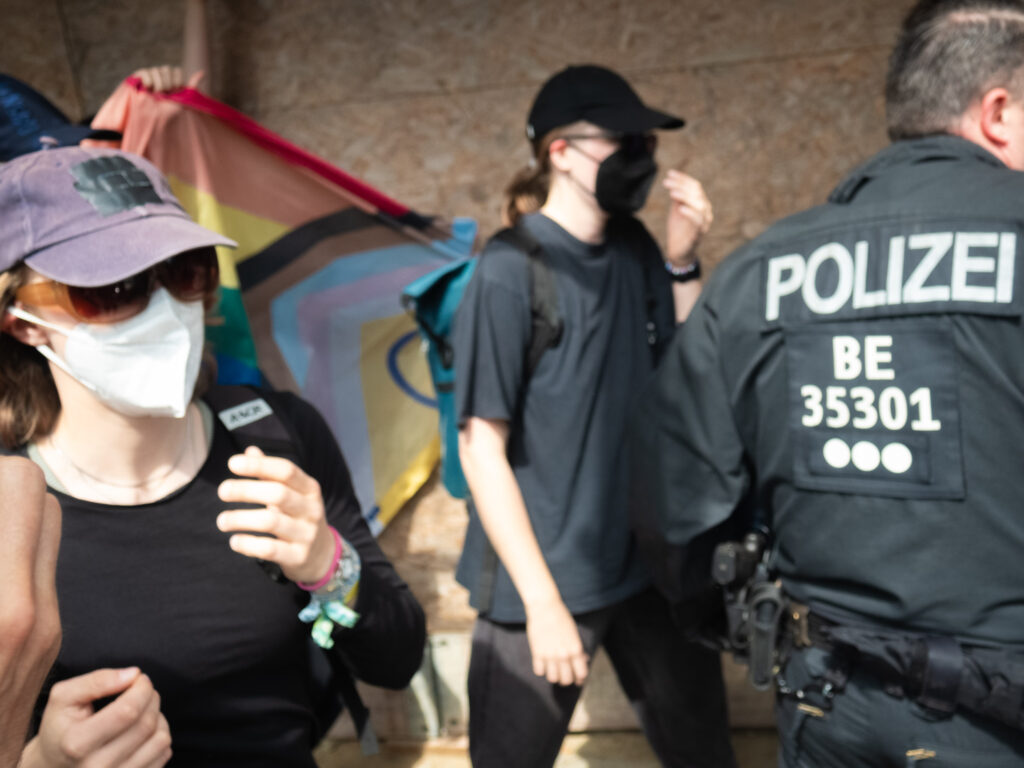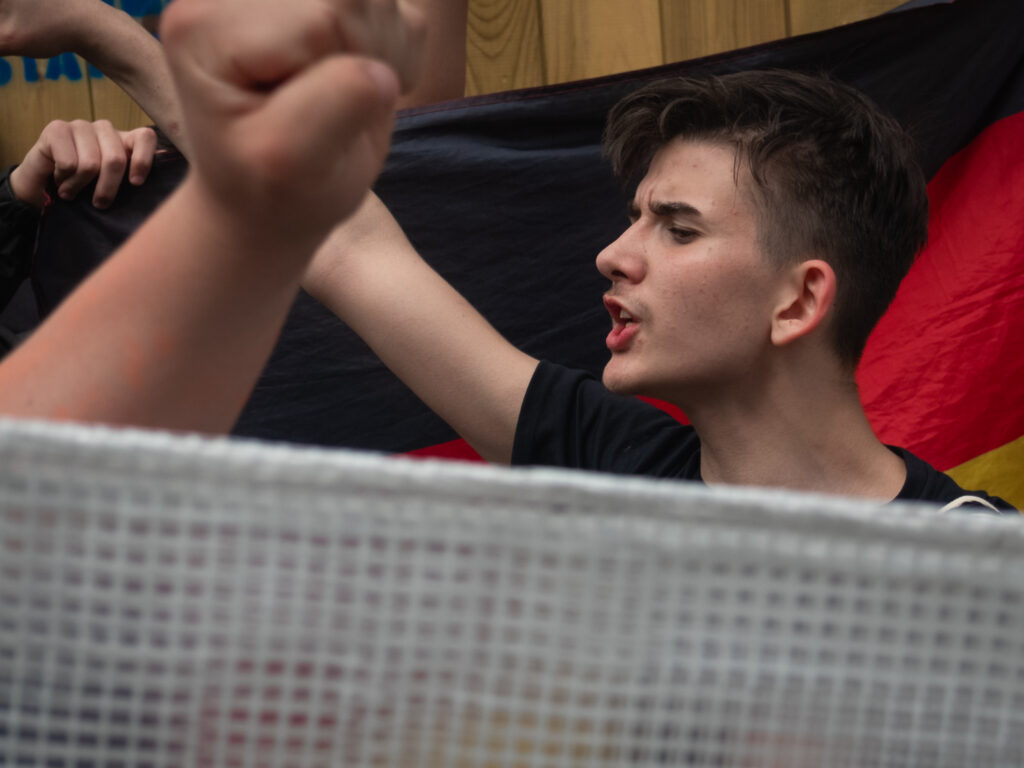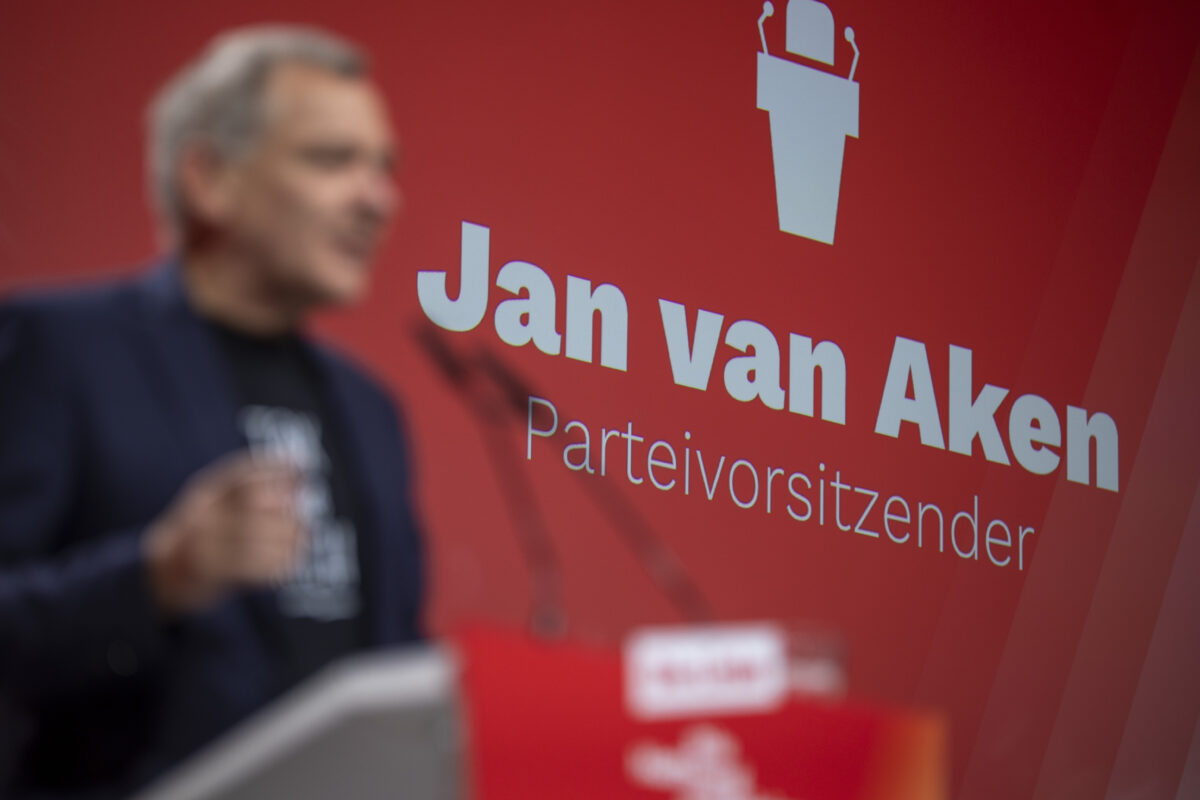Why does the German environmental movement not protest the environmental and social costs of Europe’s rearmament? And why does this movement that pretends to hold solidarity with people from the Global South not seem to care about Palestinian life in Gaza?
The environmental movements seem to be tacitly accepting of Europe’s path of increasing militarisation. The lack of awareness concerning this path for a “militarized peace” in Europe reveals a deeper issue within the German environmental movement.
The North Atlantic Treaty Organization’s (NATO) propaganda has effectively manipulated public opinion, convincing the public that peace is not just unattainable but undesirable. War, we are told, is a necessary cost for security, and rearmament is sold as progress. European leaders pretend to build a war society. Moreover, the German environmental movement has not placed peace at the centre of its demands, accepting a perpetual state of war as the new normal of European reality.
Ecology as Structural Critique
As a starting point, it’s essential to differentiate between the ecologies at stake: the ecology of abundance in the North and the ecology of scarcity in the South. Despite its obvious flaws, this distinction remains crucial, even though the forces of rampant neoliberalism and militarism are now imposing new logics of austerity and structural poverty within Europe itself. Joan Martínez-Alier coined the term “ecology of the poor” to highlight the differences between these ecologies, which is now reflected in the support of different struggles, not only “environmental“. Historically, there has been a direct connection between critiques of production systems that externalize pollution and emissions to the Global South, while reaping the benefits of consumption in the North. During the sixties and seventies, the analyses of the vast inequalities between North and South focused primarily on economic criteria; however, ecological concerns have been increasingly integrated, giving rise to the multidisciplinary field of political ecology. Economists, anthropologists, and geographers attempt to explain the persistent unequal relations between the “developed” and “developing worlds”, reading through the lens of neo-colonial power structures that have been gaining strength. Concepts such as “outsourcing society” seek to expose these interdependencies and the hidden structures of global exploitation, concerning the interconnection of (G)local ecological realities. The subaltern subjects — poor, peasant, and indigenous — have historically suffered the most from the onslaught of a capitalist extractive regime that destroys the ecological fabric. It has been marked by years of experience of living in an extractivist global regime that places the risks of disasters on its most disadvantaged population. These realities — marked by environmental disasters and socio-natural catastrophes — have elevated ecological awareness into a fundamental question of justice that cannot be detached from broader ecopolitical and sociological realities. This intersectional perspective means that environmentalism cannot be separated from wider social and historical justice demands. This feature distinguishes a “Southern” ecological movement from its “Northern” counterparts in terms of the depth of their struggles.
These global differences have become more visible during the Conference of Parties (COP) summits, which have repeatedly failed to hold the developed world accountable for its responsibility in the slow, catastrophic events of climate change. It now seems more widely accepted that the most affluent societies have also polluted the most in order to achieve their current levels of wealth, whether through energy demands, natural resources, consumption patterns, or the production of waste and toxicity.
Europe’s New Militarist Agenda
The mass-scale waste of energy and mineral resources spent on the plan of militarization will inevitably worsen the climate crisis. Yet the silence of the European population in the face of rearmament and genocide can be explained by a sustained campaign of fear, censorship, and propaganda. The remains of the green agenda need to fit the logic of necropolitical capitalism, all while remaining trapped within an ecocidal vision of endless economic growth.
The political and financial elites seem to have already set aside the promises of a “green economy” in favour of more lucrative ventures, reorienting towards the weapons and security industry. The Plan “ReaArm Europe/Readiness 2030” proposes to leverage over €800 billion in “defence spending through national fiscal flexibility”. Europe wants its own military-industrial complex, abandoning its self-imposed debt brakes to manage its public debt effectively. By releasing this institutionalised bondage, Europe is now free to buy more weapons, presenting these measures as an “investment” in its long-term security. This development will indebted European citizens, leading to more poverty and austerity, and the draining of public funds into private hands.
Meanwhile, the American military-industrial complex continues to thrive, financed by European taxpayers. A “win-win” situation for entrenched power: military, economic, and political elites profit, while the public is pacified with fear and distraction. At home in Europe, political leaders deflect responsibility by blaming Russia or scapegoating immigrants. Border security and mass deportation will be the norm to face Europe’s new declared internal “threats,” now that opponents of the genocide in Gaza may face deportation.
The German Bubble
The German environmental movement experienced a resurgence in 2018 with the rise of Fridays for Future, followed by the emergence of Extinction Rebellion and Letzte Generation. However, their civil disobedience tactics employed during the last years have sparked backlash. Mainstream media have vilified their actions, and public opinion has cooled, while activists have been criminalised.
On the website of the Letzte Generation, a letter to President F. W. Steinmeier expresses concern about the rise of the right wing in Germany as well as the destructive industrial acceleration. Greater honesty is demanded in talking to the German public about what the future holds for them. Another publication addresses the elephant in the room, calling for an end to fossil fuels (gas, coal, and oil) and the more extensive development of clean alternative energy sources. However, nothing is said about the end of the war and the end of the killings in Gaza, as if both events had nothing to do with the German government.
On the other hand, the group Extinction Rebellion appears to be more radical, advocating for climate justice, addressing the climate crisis, preserving planetary biodiversity, resisting power structures, and rethinking democracy, and even referring to post-growth as an unavoidable necessity for planetary survival. However, their website does not explicitly call for an end to the war in Ukraine and Gaza either.
If ecological consciousness means being aware of these deep connections, as Jason Hickel pointed out: “this is the thing about ecology, everything is interconnected”, then, how can we understand this mindset that overlooks the injustices that happen with the direct help of the German government?
The narrowness of this mindset is even more notable given the environmental struggles in the Global South, as Luisa Neubauer, a spokesperson for Friday For Future (FFF), said in an interview.
“It’s different for activists in the Global South or in fundamentally less privileged starting positions, where the struggles are completely different and more closely interlinked. That is why there is a certain mistrust among some people when we in Germany say that we are committed to climate justice. Because they fear that we are not serious.”
Neubauer at least demonstrates a critical awareness that climate justice cannot be separated from struggles against political oppression and structural inequality. In the interview, Neubauer distanced herself from the international FFF movement due to the broader movement’s supposed “lack of commitment to Jewish life” after the Hamas attacks in October 2023. In November 2023, Neubauer harshly criticized Greta Thunberg’s lack of solidarity with Israeli Jews, without mention of the thousands of Palestinian women and children already killed by the Israeli war machine. Their selective advocacy exposes an unsettling indifference toward the populations most impacted by the destructive system they claim to oppose.
Neubauer mentions the tension around the Israel-Palestine conflict within the environmental movement. In her view, before the Hamas attacks happened, the movement had managed to work together despite these tensions around “Israel-Palestine”. After the attacks, however, FFF Germany aligned itself more closely with the pro-Israel position of the German government and media, distancing itself from the broader movement.
The quoted interview also touched on the framing of Palestinians as indigenous people:
ZEIT: “So, translated: The Israelis are the white people, the oppressors, the privileged. The Palestinians are the brown people, the oppressed, for whom you have to stand up. Do we understand that correctly?
Neubauer: “That’s not my personal opinion, but an outgrowth of a discourse that I see internationally. In addition, Palestinians are read as indigenous people in large parts of the international discourse. And when we talk about climate justice, indigenous people are at the centre of many struggles. They experience enormous injustices, even though they are also those who protect large parts of ecosystems and biodiversity. I think we are seeing that even intersectionality can reach its limits. And that is where, in the search for the greatest suffering, hierarchies of suffering are opened up and hardly any contradictions are permitted.”
The interviewer’s irreverent tone reflects the hostility toward postcolonial frameworks that cast Palestinians as indigenous and Israelis as colonial settlers. In Germany and other places, postcolonial and decolonial theory has been increasingly attacked, labelled as “antisemitic” due to its commitment to anti-Zionist and anti-colonial perspectives.
Despite Neubauer distancing herself from these interpretations, she acknowledges their prominence in international discourse. Still, this recognition remains abstract, unable to challenge the dominant narrative within Germany, where criticism of Israel is aggressively repressed. Historical facts and global solidarity do not easily penetrate the hardened ideological bubble sustained by media and political alignment with Israeli policies in Germany.
Given the intensity with which pro-Palestinian protests are policed and criminalised, Neubauer’s position is, to some extent, understandable—though not defensible. The German media landscape has created a climate where openly acknowledging a genocide is a career-ending move. Neubauer’s position reflects not only the cognitive dissonance in which many Germans live, but also contributes to the broader authoritarian shift that criminalises dissent. It underscores the profound contradiction between Germany’s self-proclaimed commitment to human rights and its unwavering support for Israel in the face of an unfolding genocide.
Thus, the German ecological movement’s limited and partial critique, and its apparent silence about Gaza and Europe’s rearmament, in the end, points to easing the guilty conscience of the Global North´s subjectivities, whose high living standards and consumption patterns are built on extraction and exploitation in other parts of the world. In this sense, Northern environmentalism becomes a limited version of ecological awareness, interpreting processes of decolonial struggle merely as a metaphor for a fight in abstract terms. Its stance is deeply provincial and depoliticized, which, despite its claims and supposed radicalism, ignores the colonial and imperialist structures that the political elites in Europe and the US lead and uphold.
We slumber into destruction…
Joseph Schumpeter’s famous concept of creative destruction reflects on capitalism’s destructive nature through economic growth and constant technical innovation. Marx and Polanyi depicted capitalism as a system born of dispossession and the enclosure of the commons. The basic operating system of capitalism is seeking new markets and territories to conquer. However, a crisis occurs when the imperative of eternal growth collides with the reality that there are no new markets left. Once the system has expanded across the planet, destruction becomes the new frontier. Destruction creates opportunities for renewed accumulation, especially when capital can pivot toward financing post-war reconstruction.
In this way, the crisis of overpopulation and the crisis of capital’s limits might be “resolved” simultaneously through new patterns of creative destruction. Marx warned that in its terminal phases, capitalism would turn destructively against the very institutions and markets it once created. Trump’s autodestructive trade wars exemplify this accelerating spiral of decay. In a planet with limited resources, constant economic growth is a suicidal path that will ultimately cannibalize its foundations.
With European rearmament underway, the emerging European military-industrial complex offers a new avenue for global capital accumulation. Even if a major war explodes, its devastation will offer the chance to renew capital circulation—and this grim reality makes Fredric Jameson’s famous observation painfully true: “It is easier to imagine the end of the world than the end of capitalism.” This is a possible scenario, concerning the apocalyptic political climate fostered by Trump’s fascistic, messianic, Christian-evangelical, and Zionist allies, who seem to be preparing the ground for an end-times scenario. While the German public stands idly by, the conditions for a major war are becoming increasingly ripe. With a man as openly fascist as Donald Trump at the head of a declining militaristic empire, a major war seems only a matter of time.
Against the backdrop of genocidal violence, dispossession, and unbridled imperialism, German environmentalism fails to recognize this existential challenge, risking remaining trapped in its own comfort bubble—depoliticized, unaware, and engaged with the forces that continue to destroy the planet’s ecological fabric, unwilling to confront this reality.
Let’s see if they will finally awaken from their deep slumber—if not when their welfare is endangered, then at least when their very lives are threatened by the breathtaking ruthlessness of Europe’s kakistocracy. The Northern environmental movements must unite as a pacifist force and mobilise against this path of global ruin. Otherwise, no planet, people, or environment will be left to defend. The struggle for Palestinian liberation, far from being peripheral, should matter to anyone who retains even a basic sense of humanity, as an entire people is crushed before the eyes of the world. If this machine intends to devour us all, let there be at least some resistance. Let us be those stones to stop the wheels of this horrendous life-eating war machine.

